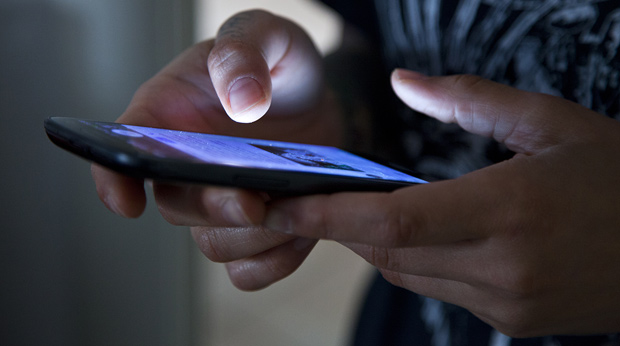 I have always been a little terrified of storms. When I was a young kid I remember having pretty intense anxiety about building wind and rain and foreboding clouds edging nearer. The intensity of the anxiety has decreased as I've gotten older, but hasn't vanished. My mom insists that it is probably because when I was a toddler I wondered off during a storm. They found me across the street in the terrible wind and rain. Truthfully, I don't have any conscious memory of that happening. I do remember once as a little kid I was riding in the car with my family through a snowstorm in Wyoming (honestly, I don't remember if it was really even that bad) but I couldn't handle it! I had to get down onto the floor of the car, plug my ears, and close my eyes and sing a song to myself (side note: don't judge my parents for not forcing me to stay in my seatbelt...different times...).
I have always been a little terrified of storms. When I was a young kid I remember having pretty intense anxiety about building wind and rain and foreboding clouds edging nearer. The intensity of the anxiety has decreased as I've gotten older, but hasn't vanished. My mom insists that it is probably because when I was a toddler I wondered off during a storm. They found me across the street in the terrible wind and rain. Truthfully, I don't have any conscious memory of that happening. I do remember once as a little kid I was riding in the car with my family through a snowstorm in Wyoming (honestly, I don't remember if it was really even that bad) but I couldn't handle it! I had to get down onto the floor of the car, plug my ears, and close my eyes and sing a song to myself (side note: don't judge my parents for not forcing me to stay in my seatbelt...different times...). Over the years of experience with this storm anxiety, I eventually learned that my fears about the whole situation actually decreased if I went outside into the storm. I'm assuming that it was my little kid brain trying to feel less out of control in a powerless situation. If I went out into the storm I knew exactly how bad it was. Watching it and hearing it from the window felt super overwhelming and scary, but getting out into it I guess made me feel like I had the full picture. My 8 year old brain could find some reassurance with "this is exactly how bad it is."
I remember in grad school learning about a theory in child psychology that asserts that sometimes children become an "expert" about things that are actually kind of scary to them. How many kids have you met who know about every species of dinosaur or shark? The theory suggests that when kids have a sort of unrealized fear about something they learn everything they can about it in a sort of reaction formation that reduces their anxiety. I could kind of relate to this idea. Not that I became a weather expert or anything, but in a bad storm I always felt compelled to just go out into it. When I was in it, then I knew it.
Over the last couple of months, I have been mostly off of social media. I have still been checking Facebook occasionally at my computer when at work, but I took the apps off of my phone. Now, believe me when I tell you that I take no kind of uppity pleasure in stating that. I haven't been off of social media because I've decided I'm too cool for it or something. I was finding that my personal relationship with social media was creating a weight and anxiety in my life that I could either work through to change my relationship with it, or I could just step away from it. Frankly, it was just easier to step away.
With all the craziness of Covid 19/Corona Virus, I have found myself back to scrolling through social media. Reading all the headlines people are posting from various news sources, finding joy in hopeful posts about quarantined streets in Italy where people are singing out of their windows, and rolling my eyes at the 3 Kabillion memes about toilet paper. I've been clicking on various posted charts explaining the spread of the virus in this country vs that country. I've been observing the interesting rise of a sort of social shaming about what various people are choosing to do or not do in the midst of all these events. Suddenly, my relationship with social media and hyperlinked information is back...with a vengeance!
I have been observing myself in the return of this constant default to scrolling on my phone over the last few days. However, I had a full realization of the return of this relationship this morning when, here in Utah, there was an earthquake of significant size. I'm sure it was not even 60 seconds after it ended that I was on my phone, checking Facebook, making sure that it wasn't just our house! As I was sitting there scrolling through people's responses I had a moment of awareness and thought, "this is interesting that I'm doing this. Why am I doing this?"
I want to be clear, that I am not suggesting that there is something inherently wrong with social media. When I ask the question "Why am I doing this?" It is not at all with a condescending tone (you know that tone, when someone asks "why are you doing that?" but their tone implies their real meaning is "why are you so stupid?") but a genuine desire to understand my motives.
As I thought about it for awhile, I realized that what I have been doing is similar to what my 8 year old self was doing to try to reduce anxiety about the storm. If I'm out in it, then I know how bad things are and that will reduce my anxiety. If I'm in the know about whats going on all over the world then that will make me less scared of whats going on. However, I'm not sure it's working.
The heaviness and anxiety with social media I'm finding has always been that it is just too much. There are so many voices and so many opinions and so many judgements and assessments. Most of the time my mind wants to understand and know all of the perspectives so that I can be informed and that can be exhausting. If I'm honest there is also a lot of time where my mind wants to judge and condemn and scoff at other perspectives and I have found that to be is just as exhausting. It's here that I have to admit the fully hypocrisy of even having written this article. I'm here typing away, fully intending to post this to social media and I recognize I'm adding to all of the noise that I am currently writing about.
8 year old me felt less anxious when he was out in the storm rather than watching it from the window, but was he actually safer? (I know that depends on a lot of things, like the type of storm it is and so forth...I get it's not a perfect metaphor). Feeling each gust of wind and each increase in downpour didn't keep the next one from coming. Was he tricking himself into thinking he had some kind of power over any of it?
I guess what I'm getting at, is that it has been helpful for me to evaluate my motives for increasing my involvement social media the last couple of weeks and that in that awareness I have found that it isn't doing for me what I want it to do. In times like this, I think it is very important to be informed, but I also think it is important to not feel compelled to have to know EVERYTHING! You can't know everything. Attempts to knowing everything will not likely help reduce anxiety if you are feeling it. This is especially true when you realize that the "everything" found in social media is a lot of assessment, judgement, opinion, and so forth. You have permission to not know everyone's thoughts about everything...including what I'm writing here. You officially have my permission stop reading if you want to.
If this is at all interesting or helpful and you are still reading at this point, I wanted to just share a few things that I have learned in my experience as a therapist and in my private mindfulness/spiritual practices and study:
1. There is ALWAYS peace in presence. Be with things exactly as they are, without judgement or assessment. This is difficult to do when constantly scrolling through social media because 98% of what is on there is some kind of judgement or assessment of something or some situation. When we see ourselves, others, and the world as what it is, instead of through the lens of "what we think it should be" we make space for peace we didn't realize was there. Eckhart Tolle said, "Whatever the present moment contains, accept it as if you had chosen it. Always work with it, not against it -- this will miraculously transform your whole life."
2. With all the commotion, pain, and difficulty that Covid 19/Corona Virus has created and will continue to create it is really easy to see the virus as some kind of villain. I really believe that it adds to the stress, anxiety, and fears about everything that is happening when we internally conceptualize the virus (or any other illness for that matter) as vengeful or spiteful in some way. There is nothing sinister about Covid 19/Corona virus. It doesn't attack or infect with some kind of dark motive. It just does what it does without self-awareness or intent. Protect yourself from it, but avoid unconsciously seeing it as something evil trying to get you. It is spreading with the same motive as a beautiful wildflower.
3. Especially during this time of social distancing, make efforts to make actual connections with people. Sometimes we can make a post on social media or scroll through the feed and we can trick ourselves into feeling like we have done meaningful connection. While posting on social media isn't NOT connecting it isn't meaningful in a way that really helps. Send a pic from your social isolation to someone specific and ask for one in return. Start a Marco Polo conversation with a few people that you honestly know and care about. When you do go out into public, make your brief interactions meaningful and purposeful by making eye contact and actually engaging for those brief few seconds. Acknowledge to a stranger how crazy this all is!
Again, I understand the contradiction inherent in posting something about some potential pitfalls of social media...on social media. I think I wanted to write this mostly to help myself understand my own motives and intentions and I am hopeful that any part of it might be helpful to someone else!








